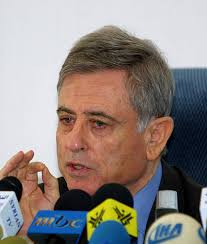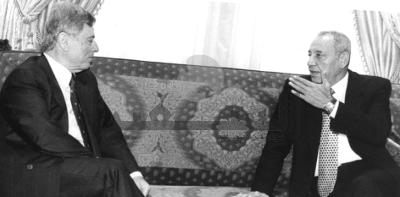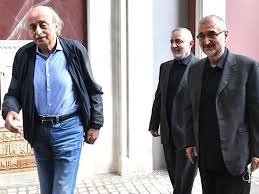Syrian Vice President Abdel Halim Khaddam emphasized Syria’s desire to promote calmness in Arab relations and resolve differences through peaceful means. During a press conference in Damascus yesterday, held on the occasion of the referendum for President Assad’s new term, Khaddam addressed various issues in the Arab arena. He highlighted the Iraqi crisis, the meetings that took place in Jordan during the funeral of King Hussein, the stagnant state of peace in the Middle East, and the economic challenges faced by Arab nations. Khaddam stressed that Arab national security primarily depends on economic stability. He also emphasized Syria’s efforts and mediation to resolve Iran’s occupation of the three Emirati islands.
Regarding President Assad’s visit to Jordan, Khaddam stated that the purpose of the visit and the meeting with King Abdullah was to open a new path in Arab relations. He emphasized that Syria only seeks security and stability for Jordan, and disagreement with any Arab country does not imply ill intentions towards them. Khaddam mentioned that the talks between Assad and King Abdullah did not delve into contentious issues such as normalization with Israel. He believed that it is essential to address internal matters first before getting entangled in complex questions. Nonetheless, both leaders expressed their desire to improve relations between their respective countries.
Khaddam described the peace process as stagnant due to Israeli policies. In response to Israeli Prime Minister Netanyahu’s statement about resuming negotiations on the Syrian and Lebanese tracks, Khaddam commented, “If Netanyahu is serious, let him declare his acceptance of the resumption of talks from where they left off and adhere to the obligations accepted by Yitzhak Rabin’s government, including the withdrawal from all occupied Syrian territories.”
Khaddam criticized the leadership of the Palestine Liberation Organization, stating that their political approach does not serve the Palestinian cause and has deviated from its national dimension to become focused on individual interests. However, he clarified that Syria does not endorse the organization’s policies but refrains from launching campaigns against it, as it does with other Palestinian factions, including the opposition. Regarding Hawatima’s handshake with Weizman during King Hussein’s funeral, Khaddam emphasized that Syria has no connection to this event, and its policy is independent of the Palestinian opposition. The approval or disapproval of this gesture rests with the organization to which Hawatmeh belongs.
Regarding relations with America and the meeting between Assad and Clinton, Khaddam stated that the meeting was brief and focused on exchanging remarks about the desire to improve the bilateral relationship. In response to a question about Syria’s stance on urging Jordan to cancel the Wadi Araba agreement with Israel and the risks Syria faces, Abdel Halim Khaddam explained that Damascus’s positions are based on a comprehensive regional perspective. He emphasized that they are convinced that certain objectives, serving Israel’s interests, would lead to the dismantling of Iraq. Regardless of the political relationship between Baghdad and Damascus, Khaddam believed that such plans would result in the destruction of an Arab country. He expressed concerns that destroying Iraq would have a catastrophic impact on the entire Arab world. Khaddam clarified that Syria’s approach to Iraq is driven by the consideration of every Arab country’s national security. He highlighted how Syria’s position during the Iraq-Iran war, which was initially criticized by many Arabs, was later deemed correct as the Second Gulf War was seen as a threat to Arab security and future. When Iraq faced aggression last December, Khaddam stated, “In fact, it was our aggression,” indicating Syria’s support for Iraq. The same stance was taken during the Iraqi forces’ entry into Kuwait in 1990.
In response to a question about Arab national security and its requirements as the region transitions from the twentieth century, and whether Damascus was expressing discontent with certain Arab policies intersecting with Arab national security during the meeting of Arab foreign ministers in Cairo, Khaddam stressed the need for Arab national security to have an economic foundation. He asserted that the security and military aspects should follow as a culmination. Khaddam provided examples of groups like Europe that formed and facilitated the strengthening of NATO. He pointed out that there is currently no robust Arab security system and that the matter primarily revolves around a joint Arab defense treaty, which has not been applied in all inter-Arab conflicts. Regarding the policy of polarization in the Arab arena, Khaddam emphasized Syria’s opposition to it, stating that their aim is not to form blocs within the Arab arena but rather to create a unified Arab bloc. If that is not achievable, efforts would be made to mitigate the negatives.
Regarding the Emirates Islands and the Iranian-occupied islands of the United Arab Emirates, Khaddam revealed that Syria has been engaged in dialogue with the Iranian side at all stages of the issue. They seek to establish a dialogue between sister countries and friends. He added that discussions on the matter are ongoing, and they hope that an agreement can be reached to alleviate tensions.



